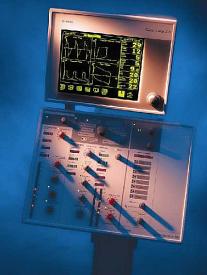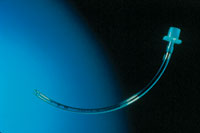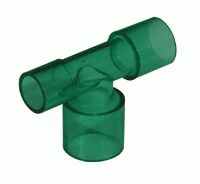Pointing The Finger

Usually, in blog-mode, I try to stay positive. I know rant blogs get more hits, but I don't really want to go there. Today I have to make an exception to that policy. This is not directed at any one person, but at the growing and annoying trend in medblogs to trash either nursing, doctoring, or [ insert profession here ].
It's happening on all sides, with lashings of hyperbole and shrill yearning for the mythical "Good Old Days". The bleating goes something like this:
Oh, but those people aren't very intelligent, and those ones over there make lots of mistakes and that other group is insulting and these people are arrogant and those don't know their place, and I've got a story about how bad they are...Please.
Everyone has stories. I've got a million of 'em. Professionals of every ilk making woeful mistakes. That's because people do, on the whole. They screw up. Over and over again, myriad bone-headed errors. Telling anecdotes (some of which are first-hand experience, some the hospital equivalent of urban legend) is all very droll, and it will score you lots of hits and a healthy comment section, but it does little to reflect the reality of any professional body.
You want to do something that makes a difference? Right here and now? Clean up your own damn backyard. Fix what's wrong with your profession, before you come bleating to me about someone else's.
I am so off-the-scale tired of people in healthcare using other professions to score political points or make themselves look smart. There's been so much discussion of who's more intelligent lately that I'm forced to wonder if anybody has more than a couple of brain cells to rub together. Apparently bright minds suggesting that one professional group is ruining healthcare in their country. Aren't we past this yet?
We're supposed to make each other better. Professions are supposed to evolve. Along the way, guess what? We're going to make mistakes. We don't have all the answers yet, and anyone who purports to in their blog o' t' week is yanking your chain.
All Out of Sorts
Grand Rounds
Speaking of caffeine, Kim delivers a Grand Rounds this week that's bound to get your dopamine levels up.I Hate My Job
PaedsRN: My caffeine is wearing off.
RN1: (Concentrating on changing a feed line.) What?
PaedsRN: I said, my caffeine is wearing off.
RN1: (Thinking she's missed some important clinical statement, moving over to me.) Sorry, I didn't hear you?
PaedsRN: MY CAFFEINE IS WEARING OFF! NEED MORE CAFFEINE!
Mondays
This relief job I'm doing at the moment has introduced me to a new concept in the wage-slave's life: Mondays.I've been a shift worker ever since I left school. The days of the week have less meaning when your 'weekend' is on a Tuesday, and you start night shifts on a Thursday. You just don't notice what day it is, although you do remark that there's an awful lot of people out partying on Friday and Saturday when you're trying to sleep, and hanging around looking hung over on Sunday morning when you're on your way to work.
Nowadays, I get to work on Monday morning and the entire weekend's accumulated detritus is waiting for me in my office. Usually five or six ventilators have had some problem occur and need 'treatment'. Some were user error, ignorance, or just a nurse in a tearing hurry who didn't have time to sit and troubleshoot, so grabbed another one. There'll be cables that don't work, monitors that need rebooting, heat tables that don't heat, and all the other things that Murphy's Law dictates will go wrong on the weekend when there's fewer people to fix 'em.
And the notes. Oh god, the notes. Scribbled on scrap paper, paper towels, the back of opened sterile packs, clinical note paper. Ballpoint pen, fluorescent felt tips, highlighters. "This passed its checks but doesn't work." "This one has rust on the battery mount." "This keeps alarming and I don't know why!"
None of them signed. Why don't they want to leave their names? Are they afraid I'll punish them for breaking things?
Hrm. I could start a whole new line of staff education... don't break it, or You Will Be Punished.

Go ahead. Break it. Make my day.
Demystifying PICU, part 2: Chaos Theory
So, you've had some very bad luck and your son or daughter has been admitted to PICU.What you see when you get here will likely dismay you at first. After that has subsided, most people we talk to profess relief that they are in critical care. They figure, if they're going to have to go through this ordeal, they'd rather go through it with as many experienced people around as possible. All our resources and equipment concentrated in one spot.
The trouble with having all that cool stuff: lots of technology, and lots of people, is that the more interactions you concentrate into a small space, the more chaotic it seems. We're like ants, or bees: we swarm, and it can all happen very quickly indeed. I wish we were better at it. One PICU even worked with Ferrari's pit crew to improve their routine. Maybe they'll come up with something good, but in the meantime it's chaos.
In their own way, the child creates their own chaotic locus. Their anxiety, distress, difficult breathing, low blood pressure or whatever has caused this admission demands an answer, now, and the PICU ant swarm must assemble its response! We try to create order from their chaos, first of all.
Because of this, one of the first things you may see us do is sedate your child. People react in different ways to this. Some are glad to see their son or daughter finally get some rest, albeit enforced. Others are frightened when they see how still their child has become. Often you will notice our work seeming somewhat more organised at this time, because we no longer need to restrain or distract the patient.
Depending on how sick your child is, you may see a great deal more activity. It's not uncommon for us to have three nurses and two doctors working with the same patient, not to mention all the extra people like radiographers, consultant physicians, surgeons, anaesthetists, a transport team, maybe a social worker and a ward clerk thrown in there for good measure. During all of this we may occasionally lose sight of our need to keep you informed. For the most part we try not to, but sometimes we don't know ourselves what to say yet. Sometimes it really is better to step out into the hallway for a few minutes, grab some water and take a few deep breaths.
Usually there are people ducking and weaving around each other as they reach for a pump alarming, the ventilator, a peripheral line, a chest drain, or whatever else they need to work with. It's a clumsy kind of dance, people in pyjamas pirouette and bow as they negotiate the throng. Sometimes I wish I could watch it from above... one of these days I'll install a camera on the ceiling.
Thankfully, in PICU chaos is fleeting. Sooner or later the pyjama dance is over and the bodies at the bedspace drift away. There should be a plan for the next few hours in place. The bedside nurse will still be working through various jobs but she will have time to talk again while she's doing them. Hopefully the PICU consultant will also have extricated herself from the ten different conversations she's been having with various teams, trying to arrange the next steps in the process, and can sit down to chat with you about what's just happened.
Don't be surprised if you don't remember a thing about all this. Chaos does funny things to a person's memory.
I once talked to a dad several days after his son's admission to PICU. He said he couldn't remember the helicopter ride, couldn't remember arriving to the hospital or much of anything about the first hours of admission. The only thing he could recall with any clarity was the big ugly soft toy singing nursery rhymes a nurse was using to get another baby to sleep.
Next week: Access All Areas.
(Last week: Ventilator, Schmentilator.)
Nurse Blog of the Month
R_n for Your Life wins October's NBOTM award! Congratulations! HK and I had a fun time figuring out why we were getting so many hits from bowling sites ;)I'll cook up a decent sort of link button when I get a sec this weekend.
In other news, HK is engaged in renovating her new home, which involves a lot of hard work, a pressure washer, and something called 'sheet rock' which I don't really understand. I'm sure we all wish her sanity and a speedy recovery from 'renovatopathy'.
When You Least Expect It
We were on opposite sides of her, me gently patting with one hand and very slowly syringing milk into her NG tube with the other. Her mother wrapping her tighter to stop busy limbs from flailing. Hoping for sleep.It'd been a horrible day for them, a catastrophic diagnosis revealed, and little time to take it all in.
They always say it: "I don't know how you do your job."
I smiled gently. "There are good days and bad days. Mostly you just try to make things better, a little bit at a time. Even when I know I can't fix what's wrong, the main problem, I can usually help with the rest."
I paused, unsure whether to make the point or not. Patronising? Maybe, but it felt right. "Maybe that's something to think about, when you go home with her. Nobody knows how to make her better, but doing the little things will make a big difference to her, to the way she feels."
Next day I was astonished to discover the baby had died suddenly later that evening, only hours after I'd been with her. No-one had expected it.
Hindsight isn't always a wonderful thing. I wish I hadn't talked about the family going home.
Your Questions Answered
Here we go with some questions from referring search engines, answered for your edification.
You asked: What does ETOH mean?
Ethanol. Y'know, alcohol. Booze. Grog. Plonk.
This one always comes up on the list. I guess a lot of people out there need a drink.
You asked: Funny nursing shirts?
Well, there's these ones.
You asked: "'if i just lay here' 'gray's anatomy'"?
Snow Patrol. See below.
You asked: 75 questions on the NC-LEX?
Yes, sometimes the test does shut off after 75 questions. I've never had to sit the NC-LEX, for which I am eternally grateful. However, I've been on the SNURSE-L student nurse mailing list for years now and in my experience the number of questions you get has very little predictive power as to whether you pass or fail.
So, don't panic! Wait for the results. Take a breath. Drink less caffiene. Go outside. Talk to your family. Do all the things you didn't do while studying for the damn test.
You asked: Nurses work Christmas?
Hell yes. And New Year's, often enough. Depending on where you work, you can usually arrange to get one or the other off. You may or may not be on night shifts. We've tried hard to convince all the sick people to look after themselves over the holidays, but they are by and large selfish creatures and insist on trivialities like breathing and having a heartbeat.
I'm taking Christmas off this year for the first time in ages. It will be quite strange to actually be with my relatives rather than listening to machines that go ping.
You asked: Who implemented mandatory immunization?
Massachusetts. If I may extrapolate from your question the following: "Which US state first passed a mandatory vaccination law?" It was MA, in 1809. If you want to take names and kick asses, you'll need to dig deeper than that.
In the US, although there are no federal requirements, a state can require immunisation against certain diseases prior to school entry. However, there's an awful lot of variation from state to state as to what exemptions exist, and how they are applied.
You can read about the concept here, here, and many, many, many other places.
Pride Cometh Before a Recalcitrant Ventilator
I shouldn't have written about how good nurses are at working with ventilators, because the gods sent me a test soon afterward.
I was called to a bedside where the vent was reading high expiratory volumes and low inspiratory volumes. Usually it's the other way around... some of the gas escapes around the side of the ETT and isn't measured by the machine, or there's a leak somewhere else. However I'd just had a morning of recalibrating vents that weren't reading volumes correctly, so my index of suspicion was higher than usual for a machine fault.
It could be the patient, it could be (most likely) the small amounts of blood that had gotten into the flow sensor, could be any number of things. I wasn't happy to ventilate a patient with a machine whose problem I didn't immediately understand, so I decided to swap it out for another one.
Well. Then I thought I'd get clever. While a colleague 'bagged' the patient, I swapped the old circuit (plastic tubes and wires) over to the new ventilator so as not to waste it. I'm fast. I'm cool. I can do it, no problem.
Uh... checks failed. Hrm. No worries, probably just a loose exhalation valve. I pull out the valve, disassemble it, put it back together. Run the check. Fail.
I check the flow sensor, gas lines, look for leaks in the circuit. Run the check again. Fail. I run to the store room for another valve. Run the check again. Fail. Dammit!
By this time I am starting to sweat a little. My colleague is being extremely patient, but obviously didn't expect to be standing there hand-ventilating a baby for quite this long. I imagine the conversation in the tea-room... "Yeah, PaedsRN tried to be a smart-ass again. I was bagging until end of shift while he built a ventilator from scratch..."
I decide to switch vents again, and check the equipment room. Grab another one, put a new circuit on, run the checks. Fail. Oh god...
Meanwhile the patient is absolutely fine, but my colleage has that expression which says they wish they'd never walked into the room.
I rip the exhalation valve apart, check each seal, and fit it back into the vent. Please please please...
Pass! Whew. Persistence pays off. I reconnect the patient and spend quite a bit of the rest of the day stripping and testing those two ventilators.
Couldn't find a single thing wrong with 'em. Bastards.
Doc Links
Way down on the left sidebar we have a couple of docblog links. I've added three more, to blogs I read on a regular basis which I highly recommend.Neonatal Doc is always topical, a bright and compassionate neonatalogist with a knack for choosing touchstone subjects and an active cohort of commenters.
Barbados Butterfly is a talented surgical registrar who describes her training with remarkable insight and humour.
The Underwear Drawer is written by Michelle, a resident in anaesthesiology and mother of one. Consistently funny.
Demystifying PICU, part 1: Ventilator, Schmentilator
I often hear with some frustration the press talk about patients being in such-and-such a hospital, "on life support".It's a dramatic phrase, but what does it mean? Just about everything we do in critical care can be thought of as life support. Give an adrenaline infusion to keep the heart pumping and the blood pressure at acceptable levels. Insert a drain into the brain's ventricles to prevent pressure from building up and killing the patient. Use a baby warmer or incubator to prevent hypothermia. All of it is life support.
What the press really mean, at least most of the time, is that the patient is on a ventilator. The breathing machine. The bit with the accordion going up and down that you see in the movies (actually, most modern vents don't have those things in 'em but it looks cool, so movies are taking awhile to catch up.)

Normally when we breathe we suck air in. We create a slight negative pressure in our lungs which draws in air from the atmosphere. Positive pressure ventilators shove air in, sometimes using quite high pressures, and allow it to flow back out again. Usually the air is pushed in via an endotracheal tube, or ETT inserted through the nose or mouth and down the windpipe.

This is not a natural way for a person to breathe. There are long-term consequences of this kind of treatment on the lungs, which are worse depending on the pressure and volume of gas used. The lungs can become scarred and inflexible, occasionally even punctured. Infections can develop. The entire process is highly stressful for both patient and family.
It's a regular activity for me to have to stop a person from breathing. Sound crazy? Sometimes we have to take over altogether, so we give a drug which prevents a patient from using most of the muscles in their body, including the diaphragm. I can do this because I know that the settings I put on the ventilator will do the breathing for the patient.
When you think about it, it's a big responsibility. If I screw up, the patient will stop breathing. If I don't take immediate action, they die. I laugh when I hear people talk about nurses 'getting back to basics' which, if you inquire further, is usually thought to involve wiping bottoms and feeding patients. I find it funny because of course I do those things too, but I also perform the slightly more immediate function of preventing children and babies from dying. Not dying eventually, but dying right there and then, in front of me.
That might sound like a grab for attention, and perhaps in a way it is. We deserve it! However, I mention this because I read with depressing regularity articles which misrepresent what nurses actually do. They're often written by people who really should know better. They perpetrate a charming, wistful stereotype of the 'good old days' of nursing with little or no understanding of what the job involves today.
Let me say it plainly: if I am ever unfortunate enough to have a child of mine in hospital on a ventilator, although of course I want a good intensivist involved, my most immediate concern will be to get an experienced PICU nurse at the bedside. Someone who knows the ventilator back to front, all its weaknesses and idiosyncrasies. A nurse who knows exactly what the last blood gas results were, and whether or not her patient was agitated or breathing fast when the test was taken. A nurse who knows what little settings tweak to make when nothing else has worked. I want someone who knows when to leave well enough alone and not fuss over small variations in the blood gas.
Someone who makes me laugh when I think I've forgotten how.
There's a lot of inuendo flying around these days about nurses and what their job should be. Allow me to take this opportunity to remind my readers that most of us are skilled at doing two or more things at once. Yes, even the men! We do the basics, and we do the more advanced stuff too. I like to call it wiping bottoms and kicking ass. How's that for a mixed metaphor?

(Now, if only I can get HK to let me change Mediblogopathy's slogan to, "Wiping bottoms and kicking ass since 2003"...)
Next Friday: Chaos Theory.
And the nominees are...
Nurse blogs up for a blog of the month award:It's a Nursing Thing
KT Living
N... is for Nurse (someday)
Nurse Ratched's Place
oncRN
R_n For Your Life
The Nurse Practitioner's Place
Zanta HCL
Vote in the garishly-coloured box at the top of the sidebar. May the blog whose author most shamelessly bribed the judges win!
Little Green Doohickeys
It's all very sexy, this business of connectors.Every part has a male and female end, for example the 22m - 22f straight connector (yes, it really is called straight) which I had to order this afternoon. Only, it turns out I actually needed a 22m - 22m - 22m/15f three-way. Connector. Three-way connector.
That lasted about half an hour, until I realised what I really wanted was a 22f - 22m - 22m/15f three-way. Look, let's just call it a T-piece, ok?

I'm not sure if that's any better.
I also may have set a new personal best today for the fastest inhaled nitric oxide setup at the bedspace of a baby with SpO2 of 40%. Got to beat that time!
Bits and pieces
Well, I suck.I should never say, "I'm going to start posting daily," because that'll mean I don't post for a week!
It's been an interesting week. I got to ride an ambulance for the first time in my professional career. You'd think as an RN I'd have been in plenty by now, but in fact this one was a first for me. Not a terribly exciting transport, escorting a patient back to another hospital. Still, fun for a change. No lights and sirens though!
The rest of the week has been spent trialling a new monitor, keeping up with supplies on the unit and doing all the troubleshooting and education that this job entails. Today I'm writing a spreadsheet to handle the data from the monitor trial, and working on some written material for a ventilator training session I'm giving later in the week.
Doesn't sound terribly exciting, does it? Just goes to show, you never really know what you'll be asked to do after you graduate as a nurse.
